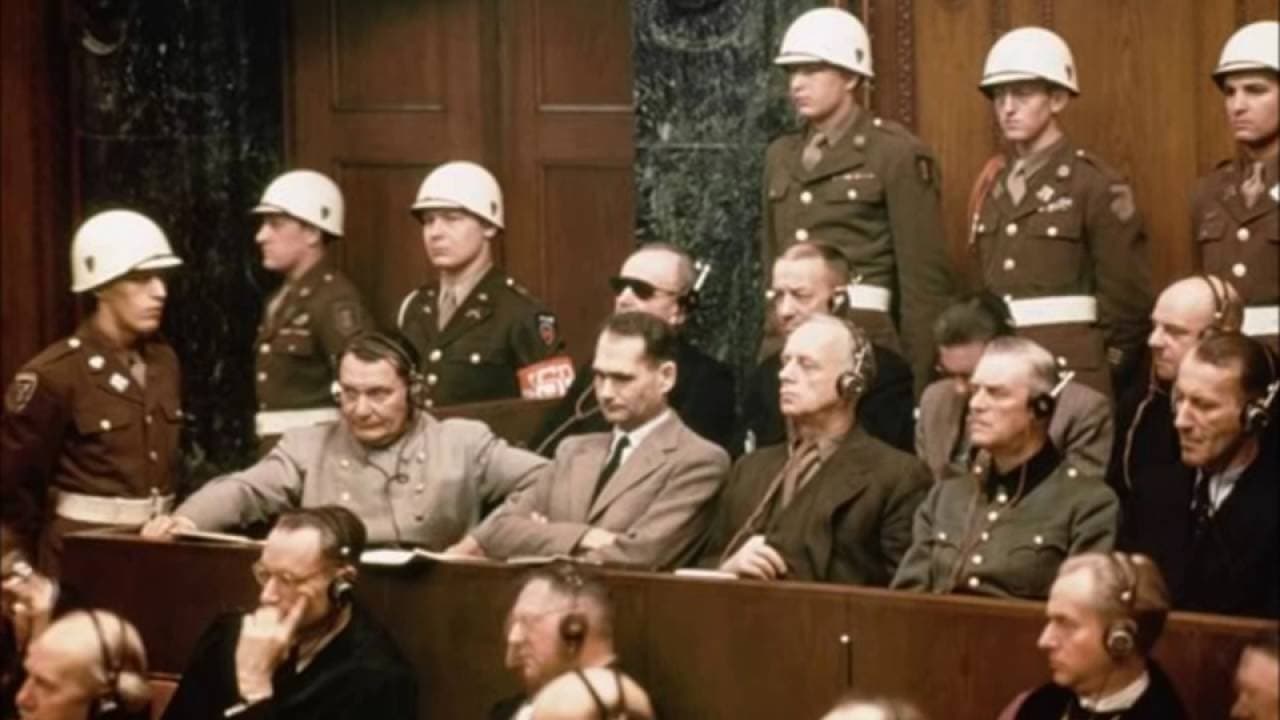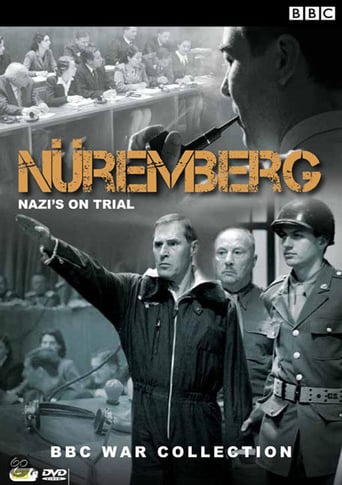Gutsycurene
Fanciful, disturbing, and wildly original, it announces the arrival of a fresh, bold voice in American cinema.
dapplez
I decided to watch "Nuremberg: Nazis on Trial" after reading the obituary of Raymond D'Addario this month, who was the lead U.S. Army photographer during the Nuremberg trials. If you've seen photos of the Nazis sitting in the dock, they were probably his.The strength of this series is that it brings the trial and characters to life, through a combination of archival black and white footage that then cuts to the color re-enactment. The series shows the trials of three top Nazis, Hermann Goering, Rudolf Hess and Albert Speer (who is not listed in the cast on IMDb!), each in a separate one-hour episode.We see the three on trial, in their cells talking with Gustave Gilbert, an Army psychologist-liaison, and we see the lawyers discussing how to try the case. Plus we see some academic experts providing insight into the trials and the three Nazis.The program plays up the ambiguities of the defendants, just how sane or insane was Hess, how guilty and sincerely remorseful was Speer? These are gradually addressed over the episode, with some resolution at the end. But can anyone provide a full, balanced portrait of a Nazi in one hour? You come away feeling something might be missing, but not sure what. So you need to learn more about what happened, which is not a bad thing.Also, you probably need some background beforehand. I had just watched "The Bunker" 1981, starring Anthony Hopkins as Hitler during the last days of the war from inside Hitler's bunker in Berlin. It is apparently accurate (except for the ventilator), and provides key information about Speer's actions during this time. I happened to read an account of a nurse who was in the bunker, which prompted me to watch this.It helps to be in the right frame of mind to watch these sorts of programs. Just thinking about the Nazis and the Holocaust can make me nauseous. But it is essential that we understand this period in history; the lessons were paid for with the lives of millions of Jews, Catholics, Russians, Germans and Allies.It would be easy to dismiss Nazis like Goering, Hess and Speer as insane, as incarnations of evil, as not human beings. But they were human; that is one of the benefits of seeing "Nuremberg." There was at least some rationale in twisted logic to their actions, even to Hess'.The program reveals at the end Hess' explanation of what drove the Nazis: drugs secretly administered to them by a Jewish conspiracy. While this sounds nuts, there were drugs being used; Hess was sitting next to a morphine addict, Goering, during the trial. Hitler was a regular Elvis Nazi, and may have been treated for Parkinson's -- see "High Hitler." There are even claims that Hitler took hallucinogens in the early days of the Nazi party as part of occult practices. So Hess may, indeed, have seen Nazis on drugs.But, ultimately, the human motivation was simple: They thought they would win, they would gain personal power, they would get away with it. Mel Brooks summed it up in "The Producers": "Don't be stupid, be a smarty, come and join the Nazi Party!" Why did Speer join? It was the smart thing to do. We feel sympathy for Speer in the The Bunker and in Nuremberg. He was the one government bureaucrat Allied lawyers could feel relate to. He apparently did not admit to specific crimes against humanity, but pleaded guilty to participating in the crimes of the Nazi regime. Yet he probably did play a direct role in the holocaust, through helping to design an expansion of Auschwitz and supervising the production of poison gas. Obviously, they all had to know about the Holocaust; the problem evident here was finding the evidence to prove the charges so soon after the war. Yet I feel it was right that Speer's life was spared because his memoirs, "Inside the Third Reich," provide a unique look into the inner workings of Nazi Germany. Allowing a person with a conscience to live can be far greater punishment than death.I also recommend the documentary "How Hitler Lost the War" 1989, and the documentary on the "Battle of Britain," 2000. Reportedly Goering and some other Nazi leaders were opposed to Hitler's decision to invade Poland; the loss of the "Battle of Britain" was one of the consequences; Goering blames Hitler for this in one scene.Supposedly, the Nazis didn't plan to conquer the world so much as take over eastern Europe and Russia, and were surprised when western European nations declared war in support of their treaty with Poland, resulting in Germany's offensive move into France. The reason the Nazis lost was partly because of Hitler's astonishingly poor judgment. Too bad he didn't stick to designing cars.

